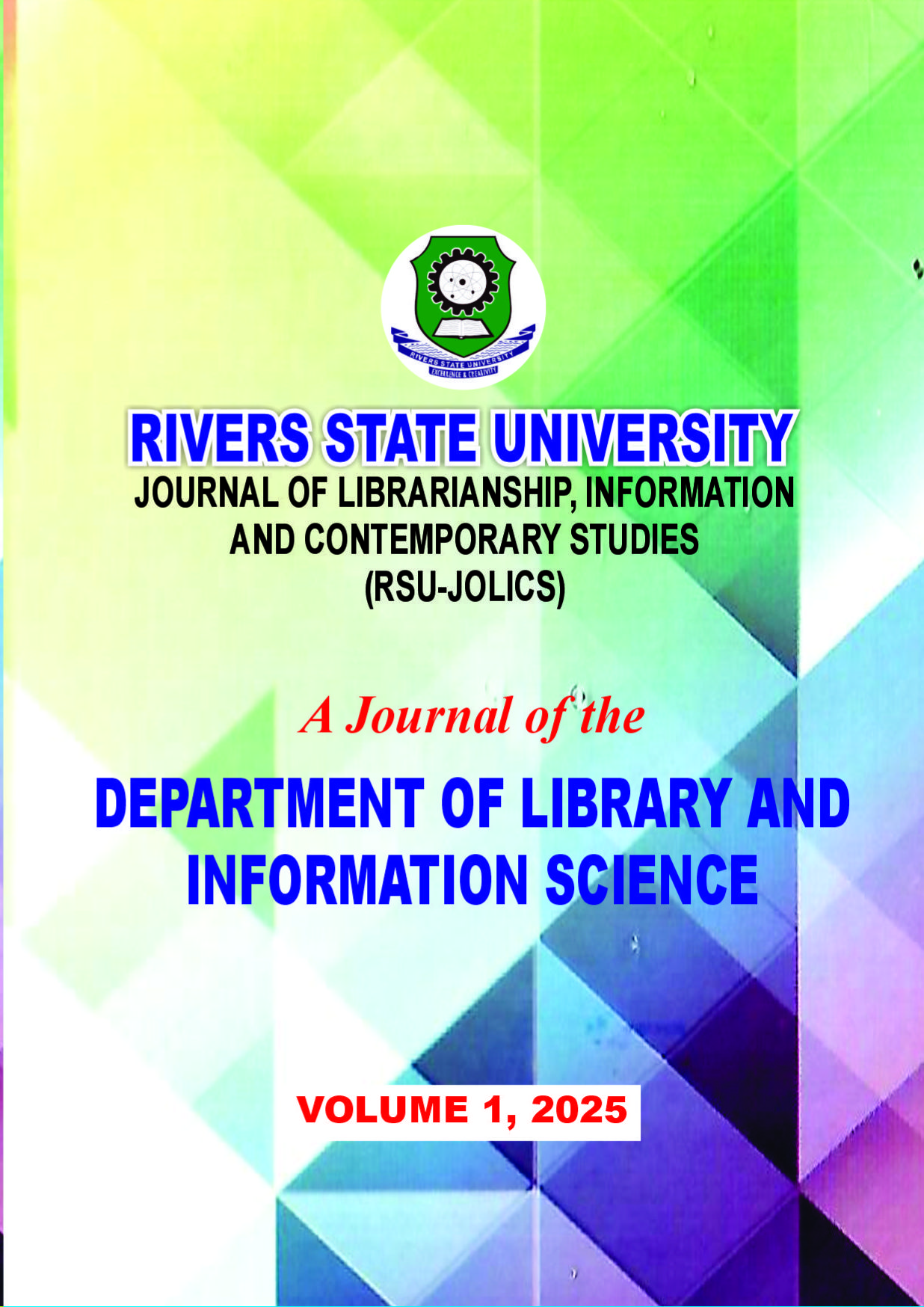Abstract
Abstract
In Nigerian universities, censorship presents a serious challenge to the ideals of academic freedom, open inquiry, and intellectual development. This paper critically analyses the manifestations, causes, and impacts of censorship on access to information and intellectual freedom in Nigerian university environments. Drawing from scholarly literature, professional frameworks, and contextual realities, the paper explores the various types of censorship—political, religious, moral, cultural, and self-censorship—and their implications for students, academic libraries, and the broader educational system. It advocates for inclusive policies, librarian empowerment, and dialogue among stakeholders as necessary pathways to protecting intellectual freedom and ensuring equitable information access for university students in Nigeria. The paper concludes that, universities must resist the urge to censor and instead foster environments where all ideas, no matter how uncomfortable, can be freely explored and discussed. The paper further suggests that universities must adopt official policies safeguarding intellectual freedom and preventing arbitrary censorship. Moreover, librarians should be trained and protected to make independent collection development decisions and that academic libraries should acquire materials from a wide spectrum of ideologies and cultures. In addition, it suggests that universities should engage religious and cultural stakeholders in conversations about the role of academic freedom and the importance of diverse information access. Finally, students should be equipped with critical thinking skills and information literacy competencies to responsibly navigate and assess controversial content.
Keywords: Academic Libraries, Access to Information, Censorship, Information Rights,
Intellectual Freedom, Nigerian Universities.



 National Library of Nigeria
National Library of Nigeria.jpg) Association of Nigerian Authors
Association of Nigerian Authors Nigerian Library Association
Nigerian Library Association EagleScan
EagleScan Crossref
Crossref